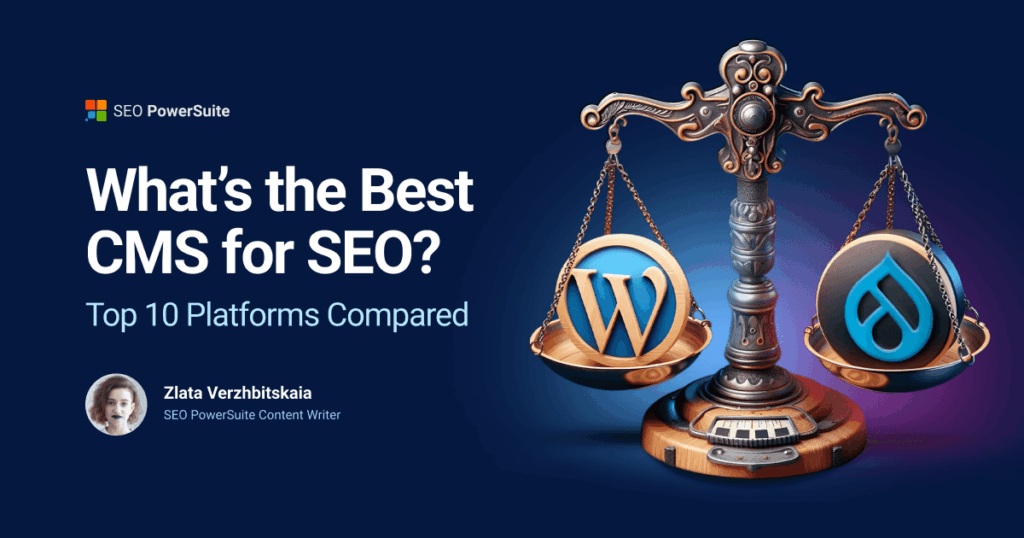Umbraco vs WordPress Which CMS Performs Better for SEO and Content Scalability?
Choosing the right content management system (CMS) is a crucial decision for businesses and developers. It can significantly impact your website’s SEO performance and ability to manage content as it grows.
When choosing a content management system (CMS), two of the most popular options are Umbraco vs WordPress. WordPress is widely used and known for its user-friendly interface, making it ideal for beginners and small to medium-sized businesses. In contrast, Umbraco caters to enterprise clients with its robust .NET framework architecture and high level of customisation.
In this article, we will compare Umbraco vs WordPress based on key factors such as:
- Core architecture and customisation approaches
- SEO tools and implementation flexibility
- Content scalability for growing websites
- Security frameworks and vulnerability management
- Cost structures and community support
- Suitability for different project types
By understanding these differences, you can choose a CMS platform that aligns with your technical resources, budget, and long-term growth goals. Both Umbraco and WordPress have unique strengths, but selecting the right one depends on your project’s specific requirements and future scalability needs.
What Are the Key Differences Between Umbraco and WordPress?
1. Architecture
Umbraco architecture runs on Microsoft’s .NET framework (ASP.NET/C#), positioning it as a developer-centric platform requiring technical expertise. WordPress architecture operates on PHP with a MySQL database, designed specifically for non-technical users who need immediate content publishing capabilities.
2. Target Users
The CMS target users diverge significantly. WordPress attracts bloggers, small businesses, and marketers seeking quick deployment without coding knowledge. Umbraco serves enterprises, government agencies, and organizations requiring complex content structures and custom workflows managed by dedicated development teams.
3. Customisation Approaches
Customization approaches reveal fundamental differences:
- WordPress relies heavily on its ecosystem of 60,000+ plugins and thousands of themes for extending functionality
- Umbraco favours bespoke development, building custom features directly into the platform’s modular architecture
This distinction impacts long-term maintenance. WordPress sites accumulate plugin dependencies that may conflict during updates, whilst Umbraco implementations maintain cleaner codebases with fewer third-party dependencies. WordPress enables rapid prototyping through drag-and-drop builders; Umbraco demands upfront planning and developer resources to construct tailored content management solutions.
How Do Umbraco and WordPress Compare in SEO Performance?
WordPress dominates on-page SEO management through its extensive ecosystem of SEO plugins WordPress users rely on daily. Yoast SEO and Rank Math provide non-technical users with intuitive interfaces for optimizing metadata, generating XML sitemaps, managing breadcrumbs, and implementing schema markup—all without writing a single line of code.
The platform’s block editor integrates seamlessly with these tools, offering real-time content analysis and readability scores that guide content creators toward better optimization. WordPress sites can achieve strong search rankings quickly because the technical SEO infrastructure is essentially plug-and-play.
SEO capabilities Umbraco offers take a fundamentally different approach. The CMS provides a blank canvas where developers build custom SEO solutions tailored to specific business requirements. This means greater control over URL structures, canonical tags, and advanced schema implementations, but requires technical expertise to configure properly.
Umbraco excels when projects demand unique SEO architectures—complex multilingual implementations, custom content relationships, or enterprise-specific metadata requirements. Developers can create bespoke SEO workflows that integrate directly with content approval processes, something standard WordPress plugins cannot replicate without significant customization.
Which CMS Offers Better Content Scalability?
Umbraco handles enterprise CMS scalability more effectively through its modular .NET architecture, which allows granular control over content types, workflows, and database structures without performance degradation.
The platform’s architecture separates content logic from presentation, enabling teams to manage thousands of pages across multiple sites whilst maintaining consistent performance. Umbraco’s document type system allows developers to create reusable content structures that scale efficiently as content volume grows, avoiding the plugin conflicts that often plague WordPress installations at scale.
When it comes to multilingual content management, there are significant differences between platforms:
- Umbraco provides native multilingual support with language variants built into content nodes, allowing seamless management of translations within a single content tree.
- WordPress requires plugins like WPML or Polylang for multilingual functionality, which can introduce performance overhead and complexity.
Under high traffic conditions, Umbraco’s integration with Microsoft Azure and IIS servers delivers superior caching capabilities and load balancing. While WordPress sites can achieve similar performance through managed hosting and CDN solutions, this often requires careful plugin selection and ongoing optimization to prevent bottlenecks as content libraries expand beyond 10,000 pages.
For organizations looking for a robust CMS solution that offers better content scalability, Umbraco stands out as a superior choice compared to WordPress. However, it’s also important to consider the technical requirements and deployment strategies associated with each platform to ensure optimal performance and scalability.

How Do Security Features Differ Between Umbraco and WordPress?
Umbraco delivers enterprise-grade security through its .NET framework foundation, offering built-in protections that make it inherently more secure for large-scale deployments. The platform benefits from Microsoft’s rigorous security protocols, including automatic memory management, type safety, and protection against common vulnerabilities like SQL injection and cross-site scripting. .NET security benefits extend to regular framework updates that patch vulnerabilities at the core level, reducing the attack surface without requiring constant plugin monitoring.
WordPress faces heightened security risks primarily due to its widespread popularity, making it a frequent target for malicious actors. The CMS security comparison reveals that WordPress sites often depend on third-party security plugins like Wordfence or Sucuri to establish adequate protection. These plugins provide:
- Real-time malware scanning
- Firewall protection
- Login attempt monitoring
- Two-factor authentication
Regular core updates, theme patches, and plugin maintenance become critical responsibilities for WordPress site owners. Sites running outdated components or poorly coded plugins create significant vulnerabilities that attackers actively exploit.
What Are the Cost Implications When Choosing Between Umbraco and WordPress?
WordPress typically delivers lower upfront costs through widespread shared hosting options starting from £3-10 monthly and thousands of free themes and plugins. The CMS cost comparison shows WordPress sites can launch with minimal investment, making it accessible for startups and small businesses operating on tight budgets.
Umbraco requires Windows-based hosting or Azure infrastructure, pushing monthly costs to £20-100+ depending on performance requirements. The platform itself remains free and open-source, but hosting costs Umbraco vs WordPress reveal a significant price gap favouring WordPress for basic deployments.
Developer expenses create the most substantial long-term difference. WordPress allows non-technical users to manage content independently, whilst Umbraco demands skilled .NET developers for:
- Custom content type creation
- Workflow implementation
- Template development
- Advanced feature integration
These developer rates typically range £50-150 per hour in the UK market. Businesses choosing Umbraco should budget for ongoing technical support, whereas WordPress users can often handle routine updates and content changes without professional assistance.
How Does Community Support Influence the Choice Between These Two CMS Platforms?
Does the size of a CMS community really matter for your project’s success? Yes—WordPress community size gives you immediate access to millions of users, thousands of tutorials, and countless freelancers ready to solve problems quickly, making it particularly valuable for smaller businesses with limited budgets.
The CMS community support ecosystem around WordPress includes:
- Extensive documentation covering virtually every use case
- Active forums like WordPress.org support and Stack Overflow with rapid response times
- Thousands of YouTube tutorials and blog posts for self-learners
- Affordable freelancers available on platforms like Upwork and Fiverr
- Managed hosting providers offering WordPress-specific technical support
Umbraco’s community operates differently. Though smaller in numbers, it consists of highly skilled .NET developers and enterprise-focused agencies. The official Umbraco forums provide professional-grade advice, whilst commercial support packages deliver dedicated assistance for mission-critical projects. This professional network suits organizations requiring specialized technical expertise rather than general guidance.
The choice between these communities depends on your team’s technical capabilities and budget for external support. You may like to visit https://tantrasystems.com/top-7-features-every-umbraco-agency-recommends-for-high-performance-websites/ to check out more about top 7 features every Umbraco agency recommends for high-performance websites.
Which CMS Is More Suitable for Different Types of Projects?
WordPress serves bloggers, startups, and small-to-medium businesses seeking rapid deployment without extensive technical resources. The platform’s intuitive interface allows content teams to publish immediately, whilst the extensive plugin marketplace addresses most common requirements. Budget-conscious projects benefit from affordable hosting options starting at £3-10 monthly, with thousands of freelancers available for customisation work.
Umbraco targets enterprise organisations, government agencies, and businesses managing complex content workflows across multiple sites or languages. The enterprise CMS choice depends on factors like:
- Team composition: Do you have in-house .NET developers?
- Content complexity: Multiple content types, approval workflows, or granular permissions?
- Traffic expectations: Handling millions of monthly visitors with consistent performance?
- Integration needs: Connecting with existing Microsoft infrastructure or enterprise systems?
CMS project suitability aligns with resource availability. Projects lacking dedicated developers struggle with Umbraco’s initial setup, whilst WordPress sites requiring sophisticated custom functionality often outgrow the plugin-based approach. Marketing teams preferring autonomous content control favour WordPress, whereas organisations prioritising architectural flexibility and long-term scalability lean towards Umbraco’s developer-centric model.

Conclusion
Both Umbraco and WordPress can deliver exceptional SEO results when implemented with proper strategy and technical execution. The best CMS for SEO 2024 isn’t determined by the platform itself but by how well it aligns with your specific requirements.
Your scalable CMS choice conclusion should weigh these critical factors:
- Project complexity: Enterprise-level sites with intricate workflows benefit from Umbraco’s architecture
- Technical resources: WordPress suits teams without dedicated developers, whilst Umbraco demands .NET expertise
- Budget constraints: WordPress offers lower entry costs; Umbraco requires higher initial investment
- Growth trajectory: High-traffic, multilingual sites scale more efficiently on Umbraco
Ready to make your decision? Evaluate your current technical capabilities, projected growth, and available budget. If you’re still uncertain about which CMS performs better for SEO and content scalability for your specific situation, consult with a CMS specialist who can assess your requirements. Start with a pilot project or trial environment to test which platform delivers the performance and flexibility your business needs before committing to a full migration or build.
FAQs About “Umbraco vs WordPress” Comparison
Umbraco is a .NET-based CMS built for developers and enterprise projects, while WordPress is PHP-based and ideal for beginners and small businesses.
2. Which CMS is better for beginners?
WordPress is more beginner-friendly with an easy interface and thousands of plugins that require no coding skills.
3. Which CMS offers better customisation?
Umbraco offers deeper, developer-level customisation, while WordPress relies on pre-built themes and plugins.
4. How do Umbraco and WordPress compare in SEO?
WordPress offers simple SEO setup through plugins like Yoast, whereas Umbraco provides full control for custom SEO solutions.
5. Which platform handles scalability better?
Umbraco is more scalable for large enterprises managing thousands of pages or multi-site networks.
6. Which CMS is more secure?
Umbraco’s .NET framework provides built-in enterprise-grade security, while WordPress depends on third-party security plugins.
7. What are the cost differences between Umbraco and WordPress?
WordPress is cheaper to host and maintain, while Umbraco requires higher hosting and developer costs.
8. How does community support differ between both platforms?
WordPress has a larger global community and free resources, while Umbraco’s smaller community offers specialised enterprise-level support.
9. Which CMS suits my business best?
Choose WordPress for fast, low-cost websites. Choose Umbraco if you need a secure, scalable, and highly customised enterprise solution.


